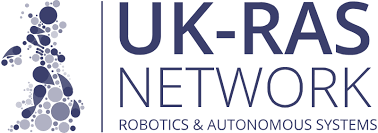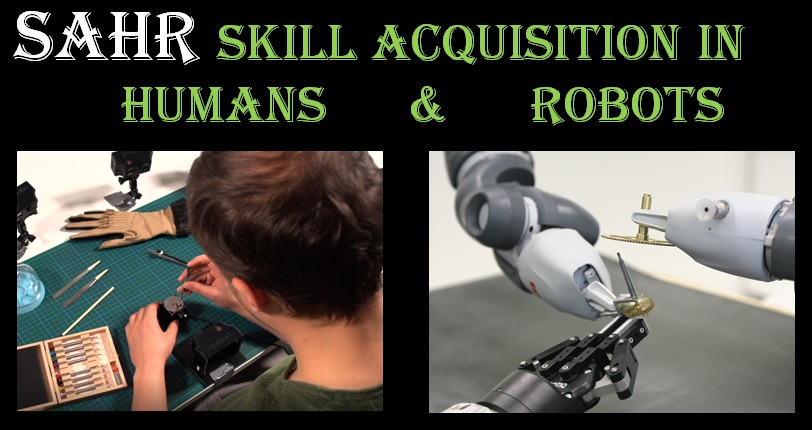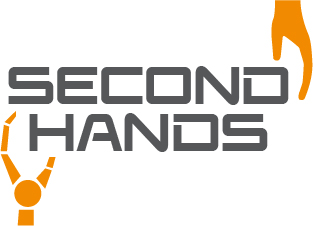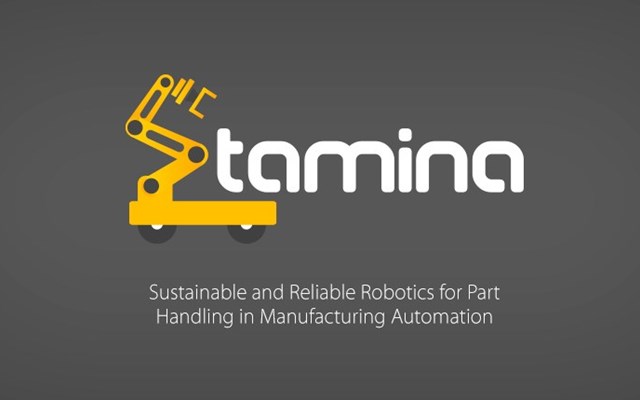Projects
My research has been supported by the following European and national projects:
Ongoing:
UK-RAS Network Plus

- Tittle: Principles of Learning from UnStructured Human-Robot Interactions (PLUS-HRI)
- Participation: 2025 -
- Role: Co-Principal Investigator
- Research: Robot learning from demonstration
- Description: This research project, aims to address the critical challenge of enabling robots to learn effectively from unstructured data generated through interactions with non-expert users in real-world environments. The team will develop a novel theoretical framework for uncertainty quantification, intention inference, and transfer learning, using autonomous navigation as a case study. By focusing on learning from suboptimal demonstrations and in-situ human-robot interaction data, the project seeks to create robust methods that allow robots to adapt and improve in dynamic, everyday settings. The outcomes are expected to increase robot autonomy, interpretability, and usability, with broad implications for democratizing access to robot control and fostering interdisciplinary collaboration beyond Robotics and AI. Project Website
Centre for Doctoral Training in Agri-Food Robotics: AgriFoRwArdS

- Tittle: Reduced-order modelling and control of a greenhouse environment to optimize salad production
- Participation: 2024 -
- Role: Principal Investigator
- Research: Machine Learning for greenhouse control
-
Description: Recent advancements in robotic and autonomous system for agriculture pave the way toward the realization of autonomous greenhouse where yield could be optimized, and resources reduced. The vast amount of data that can be collect has the potential to encapsulate growers’ knowledge into a quantitative, and controllable system, however the exact response of cultivars to environmental change and to diverse sensory input is still elusive.This project is supported by Crystal Heart Salad. Project Website
- Tittle: Robot Learning of Harvesting Tasks from Humans’ Demonstrations
- Participation: 2021 -
- Role: Principal Investigator
- Research: Robot Learning for agricutural harvesting
- Description: Agricultural tasks, such as selective harvesting and crop husbandry, are usually physically demanding, challenging, tedious and repetitive which are performed by humans in harsh conditions . The project aims to increase the automation level of such tasks by reducing its cycle time and rise the harvesting success rate focusing on complex and challenging task variants. E.g. When a specific fruit must be collected from a cluster. Therefore, during the project, an intelligent robotic system will be developed which will be able to learn the harvesting task directly from human experts and autonomously adapt the acquired knowledge to novel scenarios. This project is supported by Gogtooth Technologies. Project Website
Completed:
EU ERC Advanced Grant – SAHR

- Tittle: SAHR - Skill Acquisition in Humans and Robots
- Participation: 2020 - 2021
- Role: Researcher
- Research: Learning dynamical systems from demonstrations
- Description: Robots in the future will not be simple machines only capable of repeating basic actions: they will adapt to unexpected changes and learn all kinds of task. In order to program robots able to learn very complex tasks, we first try to understand how humans manage to accomplish them. Our aim is thus to study watchmaking through its training process, as an excellent example of high dexterity tasks. Furthermore, watchmaking requires fine tuned hand coordination, which is essential in learning collaborative robot manipulation. Project website
EU H2020 – SecondHands

- Tittle: SecondHands
- Participation: 2019 - 2020
- Role: Researcher
- Research: Learning skills from demonstrations
- Description: SecondHands aims to develop a robot assistant that is trained to understand maintenance tasks so that it can either pro-actively, or as a result of prompting, offer assistance to automation maintenance technicians performing routine and preventative maintenance. Conceptually the robot’s task is to provide a second pair of hands to the maintenance technician, such that once the robot has been trained, it can predict when it can usefully provide help and knows which actions to take to provide it. Project website
EU H2020 – CogiMon

- Tittle: Cognitive Interaction in Motion
- Participation: 2018 - 2019
- Role: Researcher
- Research: Learning skills from demonstrations
- Description: The CogIMon project aims at a step-change in human-robot interaction toward the systemic integration of robust, dependable interaction capabilities for teams of humans and compliant robot More information can be found here
FFG (Austria) – FlexRoP

- Tittle: FLEXible, assistive RObot for customized Production
- Participation: 2017 - 2018
- Role: Researcher
- Research: Learning from demonstrations,Movement Primitives, Assesement Primitives
- Description: Production of mass customized products is not easy to automate since objects and object positions remain more uncertain compared to mass production scenarios. Uncertainty handling motivates the application of advanced sensor-based control strategies which increases system complexity of robot applications dramatically. A possible solution to this conflict is the concept of task level or skill based programming that will render modern robot systems. Such systems can be applied without safety fence, are easier to program, more applicable and transformable into capable robot assistants. The project will implement a skill based programming framework and will apply it on selected industrial demo scenarios and evaluate research results. The main focus of the project is the application of methods to acquire process information by worker monitoring and thus make the robot assistants self-learning.
EU H2020 – Imagine

- Tittle: Robots Understanding Their Actions by Imagining Their Effect
- Participation: 2018 - 2018
- Role: Researcher
- Research: Reinforcement Learning of Actions
- Description: Imagine seeks to enable robots to understand the structure of their environment and how it is affected by its actions. “Understanding” here means the ability of the robot (a) to determine the applicability of an action along with parameters to achieve the desired effect, and (b) to discern to what extent an action succeeded, and to infer possible causes of failure and generate recovery actions. More information can be found here
EU FP7 – STAMINA

- Tittle: Sustainable and Reliable Robotics for Part Handling in Manufacturing Automation
- Participation: 2013 - 2107
- Role: Researcher
- Research: Model Learning for Control, Robotic Skills
